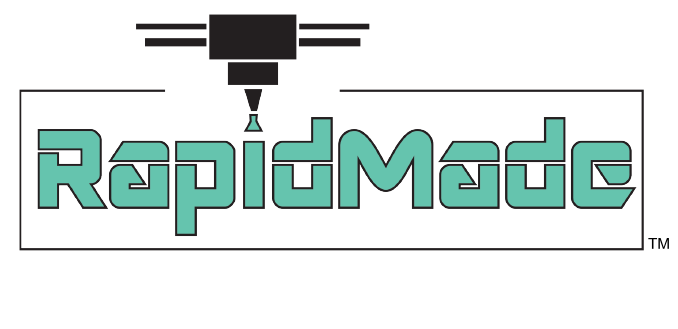Learn how innovative design and HP Multi Jet Fusion 3D printing can improve part quality, reduce costs, and speed up production.
Where: RapidMade | 15883 SW 72nd Ave, Tigard, OR 97224
When: Tuesday, April 9th, 2019 | 9AM - 4PM
Additive manufacturing is rewriting the rulebook for product design, which is why RapidMade is teaming up with HP for a free all-day event about design for additive manufacturing (DFaM) on the HP Multi Jet Fusion. Engineers and product designers are invited to join us for a special workshop led by additive manufacturing experts to learn more about how to get the most from 3D printing.
Here's what you'll learn:
Why HP used the Multi Jet Fusion instead of injection molding to manufacture over 140 functional parts used in each of its new MJF 500/300 3D printers
Identifying applications for additive manufacturing across your product lifecycle
Training on the fundamentals of effective design for MJF
Design strategies for MJF process optimization
How the materials behave and what to consider when designing for each of them
New design paradigms for additive manufacturing and the required mindset change
Designing for value maximization (process and cost)
Training on the fundamentals of effective design for MJF
Live Design for Additive Manufacturing (DfAM) demo and application examples to inspire you
This free event will feature breakfast and lunch, as well as the opportunity to tour our facilities and consult directly with specialists from RapidMade and HP.
Don’t miss out on this exciting opportunity! Registration is limited, so click the link below to reserve your spot today.
REGISTER HERE
Agenda
8:30 – 9:00 AM Breakfast
9:00 – 9:15 AM Welcome & introduction
9:15 – 9:45 AM Multi Jet Fusion (MJF) basics
9:45 – 10:15 AM Why 3D & case study of HP's adoption of Multi Jet Fusion technology for production parts
10:15 – 10:30 AM Break
10:30 – 11:30 AM Deep dive on designing for additive manufacturing – strategy, guidelines, materials, considerations, machining & threads, bonding, process control, etc.
11:30 AM – 12:00 PM Cases for tooling and final part production – urethane casting, thermoforming, fluidics management, industrial applications & electric vehicle examples
12:00 – 1:00 PM Lunch
1:00 – 3:00 PM Applications discovery workshop
3:00 – 4:00 PM Consult with HP and RapidMade experts on your parts
We look forward to seeing you!
Can't attend?
Get in touch with our 3D printing experts here.






